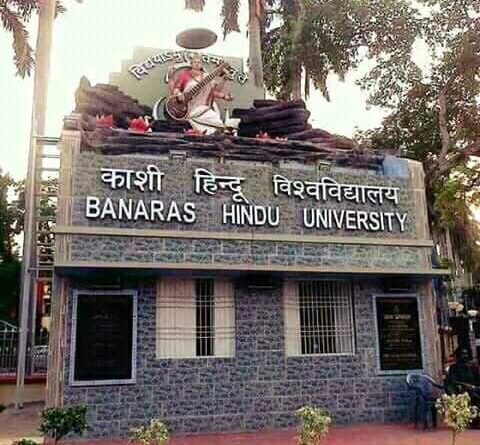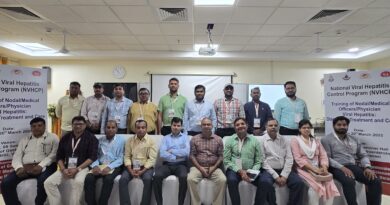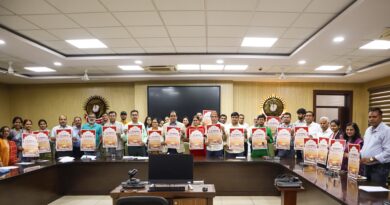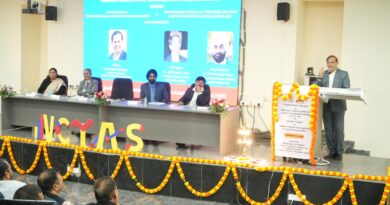Collaborative work by BHU & CSIR-IICT Scientists gets Indian Patent
• Patent Granted for Low-Cost Electrolyte Membranes for Microbial Fuel Cell Applications
• Innovation Set to Revolutionize Wastewater Treatment and Energy Generation
Varanasi : Professor Neelam Srivastava, a faculty member from the Department of Physics (MMV), Banaras Hindu University, has been awarded a patent for the development of “Low-Cost Electrolyte Membranes for Microbial Fuel Cell Applications, Synthesized by Complexing Starch (Wheat, Corn, and Rice) with Salt.” This breakthrough innovation, carried out in collaboration with Dr. S. Venkata Mohan, Chief Scientist at the CSIR-Indian Institute of Chemical Technology (IICT) in Hyderabad, aims to revolutionize microbial fuel cell (MFC) technology. MFCs are increasingly used for wastewater treatment, including sewage and industrial effluents, as they not only treat pollutants but also generate electricity during the process.
Microbial fuel cells offer a sustainable method for wastewater treatment by harnessing the power of bacteria to degrade organic matter, while simultaneously producing electricity. However, a significant barrier to scaling up the technology for real-world applications has been the high cost of the membrane material used in these systems. Currently, NAFION membranes are typically employed, but they are expensive and not environmentally friendly.
The patented work of Prof. Srivastava and her team focuses on replacing the costly NAFION membrane with a much more affordable and environmentally benign alternative. The novel membrane is synthesized by complexing starch from common grains such as wheat, corn, and rice with salt, resulting in a low-cost, biodegradable material that can perform effectively in microbial fuel cell applications.

The new membrane has undergone rigorous testing for its microbial application by Dr. S. Venkata Mohan’s team at CSIR-IICT in Hyderabad. Preliminary results indicate that the membrane performs efficiently in the electrochemical processes of microbial fuel cells, showing promise for widespread use in real-world wastewater treatment and energy generation systems.
This development holds significant promise for both environmental sustainability and cost reduction in wastewater treatment technologies. By lowering the cost of membranes, Prof. Srivastava’s innovation could make microbial fuel cells a more accessible and viable option for large-scale applications, especially in developing economies. Moreover, the use of biodegradable, non-toxic materials aligns with global efforts to reduce the environmental impact of industrial processes.
The patent is hard work of research students Dr. Manindra Kumar Dr. Jagdish Kumar Chauhan, Ms. Madhavi Yadav of BHU and Dr. Omprakash Sarkar and Dr. A. Naresh Kumar of CSIR-IICT Hyderabad.






